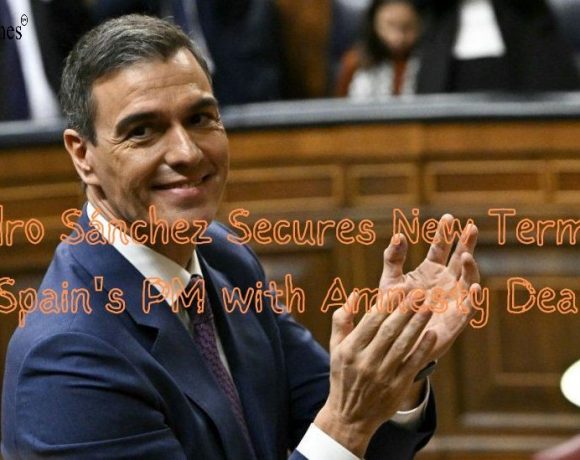
Socialist leader Pedro Sánchez has successfully navigated weeks of negotiations to secure a parliamentary vote, allowing him to serve another term as Spain’s prime minister. Despite the Popular Party winning elections in July, their leader, Alberto Núñez Feijóo, failed to form a majority. Sánchez, however, clinched a four-seat majority in the 350-seat chamber, solidifying his position.
One key aspect of Sánchez’s success was the sealing of an amnesty deal for Catalans involved in a failed bid to secede from Spain. This move was pivotal in gaining support from two Catalan pro-independence parties, even though it has stirred controversy. Critics argue that Sánchez’s proposed amnesty for politicians and activists may reignite secessionist sentiments, posing a threat to Spain’s territorial unity.
The amnesty deal, covering actions dating back to 2012, has been a point of contention, with many in Spain’s judiciary criticizing the proposal. Despite opposition, Sánchez defended the move, stating that it would help “heal wounds” and promote reconciliation. However, the main judges’ association condemned it as the “beginning of the end of democracy.”
Sánchez’s reliance on Catalan pro-independence parties has sparked protests across Spain, with tens of thousands expressing their discontent. Opposition leader Alberto Núñez Feijóo accused Sánchez of prioritizing personal interests over the country’s, emphasizing the potential risks to Spain’s unity. The political atmosphere became tense, with incidents such as protesters booing MPs and right-wing Catholic organizations displaying anti-Sánchez messages, further highlighting the divisions.
Despite the controversies, Sánchez rejected claims that his government is dependent on parties seeking to break up Spain. His swearing-in ceremony is scheduled to take place at the Zarzuela Palace in Madrid, signaling the official continuation of his leadership. However, the fragility of his new government is evident, as tensions persist and some coalition partners, like Podemos, express dissatisfaction with their role in the administration.
Picture Courtesy: Google/images are subject to copyright

